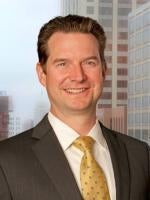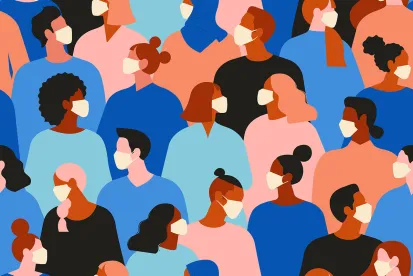Since the Supreme Court of Wisconsin overturned the State of Wisconsin “Safer at Home” orders, counties and municipalities throughout Wisconsin have each been managing their respective re-openings in the manner they believe best protects their residents and visitors. One of the continuing challenges, however, is balancing public-health interests and individual civil liberties over the summer.
Unlike many warmer-weather states, Wisconsin has a condensed season within which residents can enjoy the natural resources, engage in warm-weather recreational activities such as camping and boating, and enjoy large, outdoor events, fairs and festivals. Those activities and events have a tremendous economic impact on the localities hosting them in the form of sales tax revenue and tourist spending for local businesses. However, those activities and events may also present continuing public health concerns given that COVID-19 is still considered highly contagious given that carriers (including visitors and tourists from across state lines) can often be asymptomatic. It is for this reason that many summer events, fairs and festivals already have been cancelled or postponed until later in the year. However, there is no state uniformity or consensus as to why, how or when events, fairs and festivals should be cancelled or postponed.
Notwithstanding these public health concerns, it is almost certain that restrictions imposed on such activities, events and festivals by local health officials attempting to reduce or control COVID-19 spread will be criticized and challenged if they appear to be overly restrictive or arbitrary. Counties and municipalities face a greater challenge given the sometimes-delicate balance of needing economic development from outside visitors and tourism with protection of local health and residents’ property values.
It is within this context that various stakeholders are once again looking at the (surprisingly few) decisions the U.S. Supreme Court and the Supreme Court of Wisconsin have issued since the 19th century that have previously outlined the competing interests between preserving public health and preserving civil liberties during a serious public health threat.
Though 115 years old, Jacobson v. Massachusetts remains the key U.S. Supreme Court case articulating how and why government entities may curtail civil liberties while it tries to safeguard the public’s welfare during a public health crisis. In the last three months alone, it has been cited scores of times by courts across the country in evaluating the constitutionality of COVID-19-related restrictions on civil liberties, particularly mass gatherings.
Jacobson v. Massachusetts, 197 U.S. 11 (1905)
Henning Jacobson, the Plaintiff, refused to receive a smallpox vaccination in defiance of a Cambridge, Massachusetts, public-health regulation that was adopted to stem an outbreak of the disease. A jury found him guilty of willfully violating the regulation; accordingly, the court ordered him to pay the five-dollar penalty for its violation. Jacobson appealed his case all the way to the Supreme Court, arguing that the regulation was “opposed to the spirit of the Constitution”; in particular, he argued that it violated the 14th Amendment insofar that amendment provides that no state shall make or enforce any law abridging the privileges or immunities of citizens of the United States, nor deprive any person of life, liberty, or property without due process of law.
In a 7-2 ruling, the Supreme Court affirmed Jacobson’s guilty verdict and penalty. In doing so, the Court concluded that governmental restrictions of individual liberties were certainly appropriate to protect the greater public welfare in the face of a health crisis:
There is, of course, a sphere within which the individual may assert the supremacy of his own will, and rightfully dispute the authority of any human government,—especially of any free government existing under a written constitution, to interfere with the exercise of that will. But it is equally true that in every well-ordered society charged with the duty of conserving the safety of its members the rights of the individual in respect of his liberty may at times, under the pressure of great dangers, be subjected to such restraint, to be enforced by reasonable regulations, as the safety of the general public may demand.
The Court analogized the situation—not unlike the situation we see today—to a long-distance traveler who was exposed to a disease (but remains asymptomatic) and why such individuals may need to be quarantined against their will, despite their inherent right “to live and work where he will”:
An American citizen arriving at an American port on a vessel in which, during the voyage, there had been cases of yellow fever or Asiatic cholera, he, although apparently free from disease himself, may yet, in some circumstances, be held in quarantine against his will on board of such vessel or in a quarantine station, until it be ascertained by inspection, conducted with due diligence, that the danger of the spread of the disease among the community at large has disappeared. The liberty secured by the 14th Amendment, this court has said, consists, in part, in the right of a person “to live and work where he will” . . . and yet he may be compelled, by force if need be, against his will and without regard to his personal wishes or his pecuniary interests, or even his religious or political convictions, to take his place in the ranks of the army of his country[.]
Jacobson has been increasingly cited by courts that have considered challenges to specific restrictions state and local governments around the country have recently imposed on its residents (such as beach closures) to stem the spread of COVID-19.
South Bay United Pentecostal Church. v. Gavin Newsom, Governor of California, 500 U.S. ___ (2020)
Most significantly, this past Friday (May 29), the U.S. Supreme Court itself cited Jacobson in support of its 5-4 decision that allows California to enforce some restrictions on religious gatherings in light of the pandemic. South Bay United Pentecostal Church, et al. v. Gavin Newsom, Governor of California, et al., No. 19A1044, 500 U.S. ___ (2020) (“South Bay”). There, the Supreme Court rejected a California church’s contention that attendance caps (25% of capacity or a maximum of 100 persons) discriminated against religion. Chief Justice John Roberts, in particular, rejected the church’s challenge in light of legitimate public-health concerns:
The Governor of California's Executive Order aims to limit the spread of COVID–19, a novel severe acute respiratory illness that has killed thousands of people in California and more than 100,000 nationwide. At this time, there is no known cure, no effective treatment, and no vaccine. Because people may be infected but asymptomatic, they may unwittingly infect others. The Order places temporary numerical restrictions on public gatherings to address this extraordinary health emergency.
***
The precise question of when restrictions on particular social activities should be lifted during the pandemic is a dynamic and fact-intensive matter subject to reasonable disagreement. Our Constitution principally entrusts “[t]he safety and the health of the people” to the politically accountable officials of the States “to guard and protect.” Jacobson v. Massachusetts, 197 U.S. 11, 38, 25 S.Ct. 358, 49 L.Ed. 643 (1905). When those officials “undertake[ ] to act in areas fraught with medical and scientific uncertainties,” their latitude “must be especially broad.” Marshall v. United States, 414 U.S. 417, 427, 94 S.Ct. 700, 38 L.Ed.2d 618 (1974). Where those broad limits are not exceeded, they should not be subject to second-guessing by an “unelected federal judiciary,” which lacks the background, competence, and expertise to assess public health and is not accountable to the people. See Garcia v. San Antonio Metropolitan Transit Authority, 469 U.S. 528, 545, 105 S.Ct. 1005, 83 L.Ed.2d 1016 (1985).
That is especially true where, as here, a party seeks emergency relief in an interlocutory posture, while local officials are actively shaping their response to changing facts on the ground. The notion that it is “indisputably clear” that the Government's limitations are unconstitutional seems quite improbable.
It is not yet clear exactly how Wisconsin courts would view South Bay or Jacobson in light of specific challenges an individual or business entity may bring with regard to specific restrictions local governments may impose on their residents as summer commences. That is because the South Bay decision is not yet a week old and the Wisconsin Supreme Court has only otherwise cited Jacobson twice since it was issued—once in 1911 and once in 1955—although in both cases it agreed with the principle that safeguarding public health is often more important than protecting an individual’s particular rights afforded under the Constitution.
Adams v. City of Milwaukee, 144 Wis. 371 (1911)
The Plaintiff, a Waukesha County dairy farmer who shipped milk to Milwaukee, sought to enjoin a Milwaukee ordinance that required all milk sold in Milwaukee (originating from outside Milwaukee County) to have been produced by cows that had been tested with tuberculin and found free from tuberculosis or other contagious diseases. In particular, the Plaintiff argued that there was no consensus among scientists and medical experts as to the necessity and efficacy of the ordinance to protect public health. However, in finding the ordinance constitutional, valid and enforceable, the Wisconsin Supreme Court deferred to the government rationale for adopting it, citing Jacobson in support:
The evidence and findings in the instant case, this legislation, and these decisions, go to show a widespread recognition of the danger of infection from bovine tuberculosis and of the efficacy of the tuberculin test. When there are conflicting scientific beliefs or theories in such matters it is for the city council to determine upon which theory it will base its police regulations, and unless it is clearly and manifestly wrong it is not for the courts to interfere on the ground that the scientific theory on which the ordinance is based is incorrect or unsound. Jacobson v. Massachusetts, 25 S.Ct. 358 (1905).
Froncek v. City of Milwaukee, 269 Wis. 276 (1955)
Residents, taxpayers, and water users in Milwaukee sought to restrain Milwaukee from expending any money in carrying out a resolution of the common council providing for fluoridation of the city’s water supply. In particular, the Plaintiffs tried to distinguish matters that were of “public health” concern with those of “private health” concern and why only the former could be regulated. As the Plaintiffs argued:
Contagious and infectious disease, [and] anything that may affect others than those immediately involved, clearly involve public health. But if we have a headache from sinus, a backache from lumbago, or a toothache from caries, it is a question of private health that cannot involve anyone else.
Nonetheless, the Supreme Court held that the resolution was a reasonable exercise of the police power and was valid. In holding thus, the Court reasoned as follows, citing Jacobson in support:
While dental caries is not contagious, it is nevertheless a condition coming into existence and carrying its decaying effect to children and is generally recognized as a deteriorating element. When dental caries is recognized, as it must be, as a serious and widespread disease, a reasonably designed measure to decrease or retard the incidence thereof is in the interest of the welfare of the public.
***
Because a public health measure has been enacted and the subject bears a real, substantial, and reasonable relation to the health of the city, there is no unreasonable invasion of the rights of the individual or of “the right of parents to bring up and care for their children as they deem best,” or of any of the rights set forth by the plaintiffs in their complaint.
***
Although Adams and Froncek suggest that Wisconsin courts would likely adopt the general principle of South Bay and Jacobson—that individual liberties must sometimes be restricted for the public good—local restrictions on mass gatherings (and the constitutionality of those restrictions) will have to be evaluated on a case-by-case basis. Due to the polarizing nature of such restrictions, their scope and implementation should be carefully considered beforehand and with knowledge of how other localities have survived challenges to similar restrictions.




 />i
/>i

